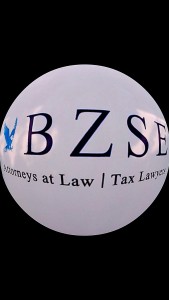LIABILITY OF THE BANKRUPTCY TRUSTEE
No policy freedom when bound by rules
Some years ago, I wrote about conflicts of interest in insolvency law matters (Tijdschrift voor Insolventierecht 4/2001, p. 115-123). I then wrote that the special characteristics of the task of a bankruptcy trustee imply that his personal liability, if any, must be assessed against a standard of due care that is geared to this. This standard boils down to the fact that a trustee should act as may reasonably be required of a trustee with sufficient insight and experience who performs his task with accuracy and dedication (HR 19 April 1996, ECLI:NL:HR:1996:ZC2047 concerning Maclou).
To a certain extent, knowledge and experience that go beyond the minimum requirements can color the standard in a concrete case: after all, there is nothing against taking as a standard a trustee with the same knowledge and experience as the person addressed. When assessing the actions and omissions, a distinction must be made between compliance with strict legal and contractual obligations, and those matters in which the trustee has a certain policy freedom. In the latter case, a certain restraint is appropriate for the judge who is called to rule and his review could be described as marginal, I wrote then. And all this is still true.
Insofar as the bankruptcy trustee is not bound by rules in the performance of his duties, in principle he is therefore entitled to a large degree of freedom (HR 16 December 2011, ECLI:NL:HR:2011:BU4204 concerning Prakke/Gips).
Insofar as the trustee is bound by rules, however, according to the Supreme Court he does not have the freedom of policy mentioned (HR 9 November 2018, ECLI:NL:HR:2018:2067 concerning De Klerk q.q.). If he does not comply with these rules, he will, in principle, be personally liable to those whose interests he had to take into account when confronted with these rules. However, the fact that the trustee in bankruptcy does not have the freedom of policy mentioned above when bound by rules does not mean that the mere failure to comply with those rules always leads to his personal liability. That depends on the circumstances of the case.
In the case in which the Supreme Court ruled on 9 November 2018, it concerned a tenant of a shop building who was in a state of bankruptcy. The lease agreement included a prohibition of subletting. Contrary to this prohibition, the trustee had allowed a third party to use the rented retail premises. The court ruled that the trustee was personally to blame and that he was liable for the damage.
Karel Frielink
(Attorney/Lawyer, Partner)
(17 December 2018)
.




